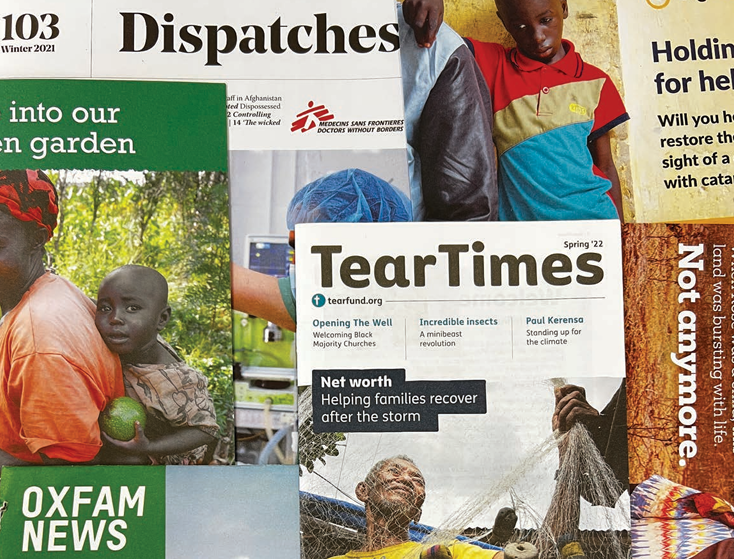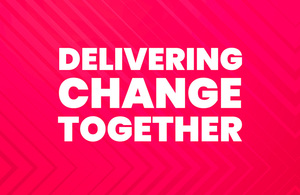Charity leaders have welcomed the launch and publication of the civil society covenant yesterday, but say that action is now needed to match the words.
Prime Minister Keir promised civil society leaders at a summit that charities will not be "shut out" or expected to "pick up the bits”.
The covenant is a principles-based agreement that hopes to reset the relationship between UK government and civil society.
The National Council of Voluntary Organisations (NCVO) CEO, Sarah Vibert, who worked closely with government on the covenant, said that it recognises the vital role charities play in shaping society but for the partnership to thrive, action is now needed.
“The publication of the Civil Society Covenant is an important milestone. It recognises the vital role civil society plays in shaping a fairer, stronger society and sets out principles for a much-needed reset for a genuine partnership between government and the sector. Civil society should remain independent, with the freedom to speak up, challenge, and campaign.
That should never be a point for debate, it’s vital for good policy, strong institutions, and a healthy democracy.
Government has a key role in creating the conditions where this can happen: fairer commissioning, longer-term funding and better regulation. For this partnership to thrive, we need stability - and action to match today’s words.”
ACEVO also welcomed the launch, CEO Jane Ide said: “ACEVO welcomes the launch of the Civil Society Covenant as an important and positive foundation in resetting and reshaping the relationship between government and civil society. It comes from a great deal of hard work, commitment and collaboration from all those who have been involved in co-producing it, including many dedicated voices from across our sector. It reflects principles that we hope both civil society and government will follow.
Whilst the Covenant sets a valuable foundation, it must be understood as a starting point, not the end point. We will continue to challenge, question and push for more because our members and the communities we serve deserve this.
Importantly, the Covenant is also about enabling government to meet its own ambitions. Whether tackling inequality, improving public services or supporting stronger communities, government cannot succeed without a thriving, independent and empowered civil society.
The true test of the Covenant will be in how it supports the Government to deliver on these missions in practice, not just in principle.
We are pleased to see the inclusion of government respecting the independence and legitimacy of civil society organisations to advocate and campaign and to hold government to account. This is an essential part of a healthy democracy and speaking truth to power is central to the role of civil society."
A turning point
Many leaders view the covenant as a turning point for the relationship between the sector and the government.
In an interview with trade press, Secretary of State for Culture, Media and Sport, Lisa Nandy called it the start of “a new chapter between government and civil society.”
“We’ve had a decade and a half where civil society organisations have seen their funding cut. They’ve seen demand soar and they’ve been routinely attacked when they’ve tried to speak out on behalf of some of the most marginalised people in the country," she said.
“We believe those voices need to be heard; that those organisations don’t just have a right, but a duty to speak out.”
Charity Finance Group (CFG) CEO, Caron Bradshaw welcomed the publication and said although it’s not perfect, it should be a turning point.
"It's easy to be skeptical and fear that we’ve been here before. However, it’s important that we look forward not backwards and commit to making the covenant a success. We welcome its publication.
"It may not be perfect but it has been co-designed and shaped by many across the sector and provides a real opportunity for closer and more productive collaboration with the government.
“This is an important recognition of the vital role civil society plays in tackling some of the biggest challenges the country faces. This should be a turning point and we will look at ways in which the covenant can be practically brought to life in the work the sector does – supporting the people and communities they serve.
“It’s positive to see the introduction of Task and Finish groups to support the implementation of the covenant. Likewise, the establishment of a new civil society forum to enable dialogue between civil society and HMT is to be welcomed. We hope that these steps will allow the covenant to deliver genuine improvements not just for the sector, but for society as a whole.”
A genuine partnership
Both the covenant and the Prime Minister’s speech reiterated the notion of charities and the government working in partnership with each other.
Crisis CEO, Matt Downie, chief executive of Crisis, believes that the government and charities should work in partnership. He said:
“The best way to solve some of the big, long-term social problems that face our country today is by civil society, Government and business coming together in genuine partnership in a way that is dynamic and different to the past. We in the charity sector are at the frontline of many of these issues, we witness their human impact on a daily basis and, crucially, we know the real, evidence-based and available solutions.
“When it comes to homelessness, recent commitments from Government including the £39 billion for the Social and Affordable Homes Programme signal a welcome shift which puts housing at the heart of the solution. With a homelessness strategy in development, it’s vital we work together to look beyond election cycles and set bold, ambitious 10 year aims that will see homelessness numbers come down and lives transformed.
“The Civil Society Covenant is a reset moment for relations between Government and the third sector. Greater trust and collaboration is vital, but that should be just the beginning. A ‘mission-based’ approach should also be about setting long-term goals and working together across sectors to solve them. Imagine businesses, faith groups, government agencies and charities coming together in communities to end homelessness. Take this to a national level and we have all the tools at our disposal to make homelessness a thing of the past.”
Latest News
-
Burnout fears emerge for younger charity workers
-
Youth charity to adopt co-leadership model
-
Mahnoor Khan: Lessons from my first year in the charity sector
-
Charities should deploy AI ‘around real user needs’ not ‘internal assumptions’, says report
-
Improved NHS mental health support prompts charity’s closure
-
Scramble to house 87 people following homelessness charity’s sudden closure
Charity Times video Q&A: In conversation with Hilda Hayo, CEO of Dementia UK
Charity Times editor, Lauren Weymouth, is joined by Dementia UK CEO, Hilda Hayo to discuss why the charity receives such high workplace satisfaction results, what a positive working culture looks like and the importance of lived experience among staff. The pair talk about challenges facing the charity, the impact felt by the pandemic and how it's striving to overcome obstacles and continue to be a highly impactful organisation for anybody affected by dementia.
Charity Times Awards 2023
Mitigating risk and reducing claims

The cost-of-living crisis is impacting charities in a number of ways, including the risks they take. Endsleigh Insurance’s* senior risk management consultant Scott Crichton joins Charity Times to discuss the ramifications of prioritising certain types of risk over others, the financial implications risk can have if not managed properly, and tips for charities to help manage those risks.
* Coming soon… Howden, the new name for Endsleigh.
* Coming soon… Howden, the new name for Endsleigh.
Better Society

© 2021 Perspective Publishing Privacy & Cookies














Recent Stories